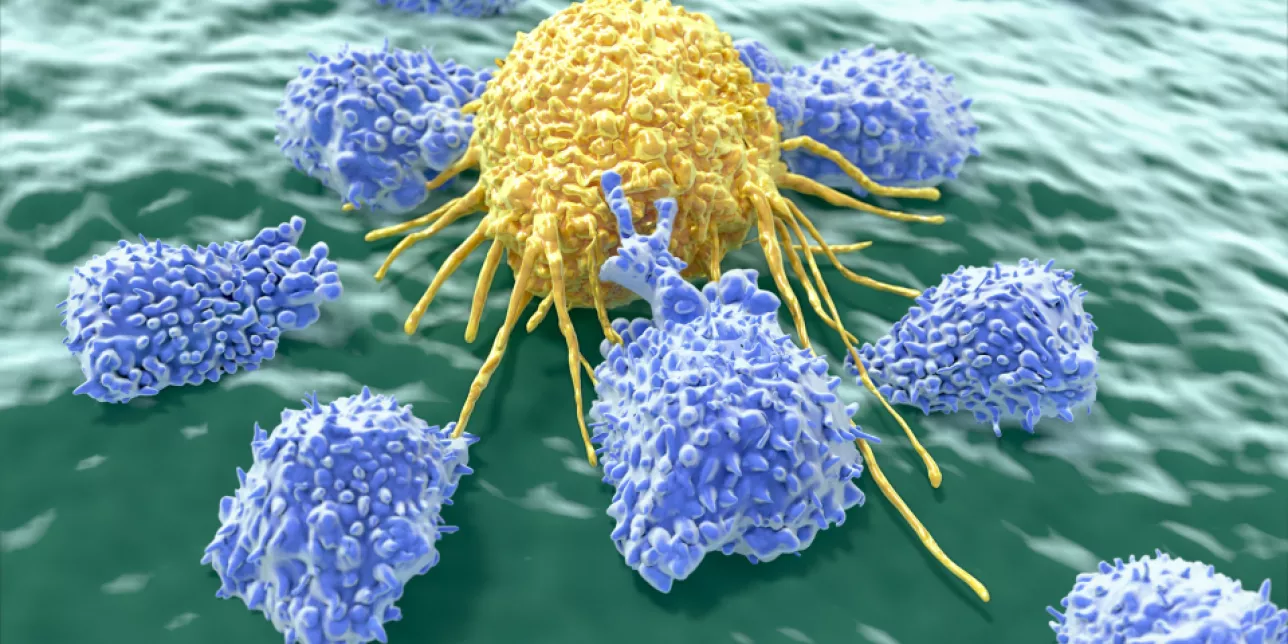Basic research / translational and preclinical research / quantitative study / In Vivo / In vitro
Around two billion natural killer (NK) cells, so-called killer cells, circulate around our bodies and play an important role in the body's defense against various cancers and infections. This important function has led researchers to become interested in how NK cells, a type of white blood cell, can be used in immunotherapy treatment for, among other things, cancer. To do this, they want to better understand how these supercells are produced and what happens when a blood stem cell develops into a NK cell.
- By taking cells from an adult's tissue - for example, a hair follicle or a skin cell - we can reprogram them to their original shape reminiscent of embryonic stem cells - so-called iPS cells, induced pluripotent stem cells. These cells can then mature into different types of blood cells, explained Niels-Bjarne Woods, researcher and group leader of the study.
In these iPS cells, the research team found a metabolic switch that can activate specific bloodlines and thereby increase the production of NK cells.
- In our cells, there are a large number of mitochondria that function as a power plant and where different chemical reactions release energy to the body's organs. By feeding the mitochondria with different substances, we were able to influence their signals and thereby control which of the hematopoietic cells developed. We did the studies first in the laboratory and then in mice with the same results, said Niels-Bjarne Woods.
Increased metabolism in the mitochondria resulted in higher levels of killer cells. This shows that metabolism is an important regulator of blood development during the fetal period. The advantage of producing blood cells in this way is that it is possible to produce large quantities of high-quality NK cells and the matching between donor and recipient can be easier.
- We have identified how we can use metabolic factors to control the development of blood towards producing specific blood cells, which in the long run could mean that we can tailor effective killer cells for the treatment of various cancers. Transplanting genetically modified NK cells from iPS cells is the next big hope for anticancer therapies, concluded Niels-Bjarne Woods.
Declaration of Interests
Niels-Bjarne Woods is the founder and shareholder of Amniotics AB, Lund, Sweden, a research company that develops cell therapy drugs based on mesenchymal stem cells. The company is interested in developing the technology from this study for the clinical application of NK cells for cancer treatment.
The study has been funded with the support of the Wenner-Gren Stiftelserna, EMBO Long-term fellowship, BioCARE, Knut and Alice Wallenbergs Stiftelse, Barncancerfonden, Vetenskapsrådet, Cancerfonden, Kungliga Fysiografiska Sällskapet i Lund, Svenska Sällskapet för Medicinsk Forskning.



